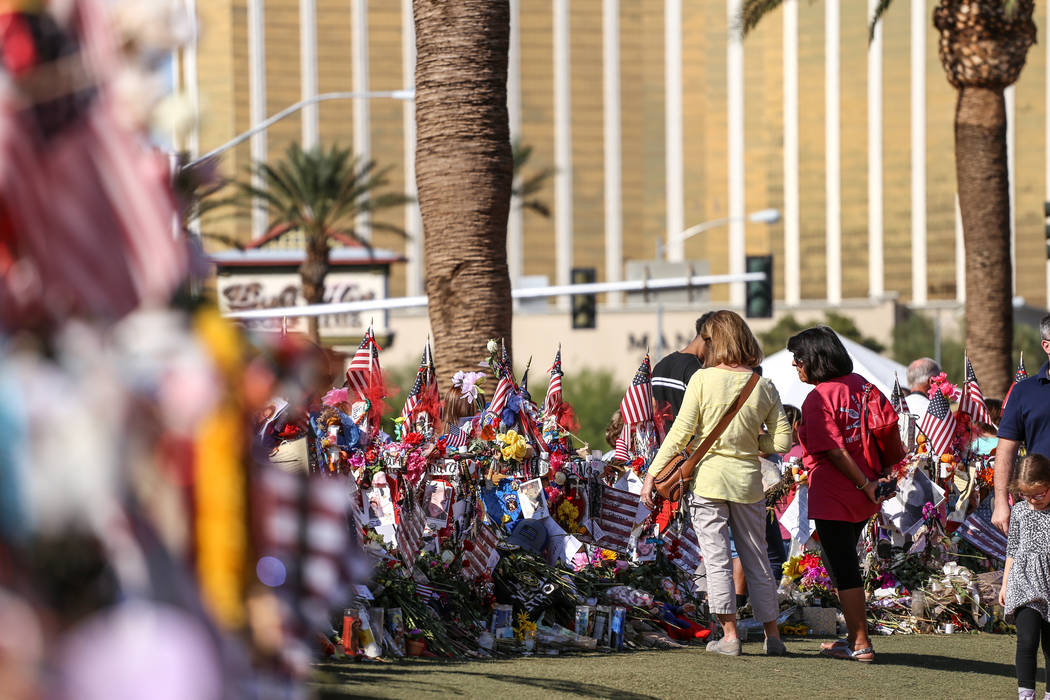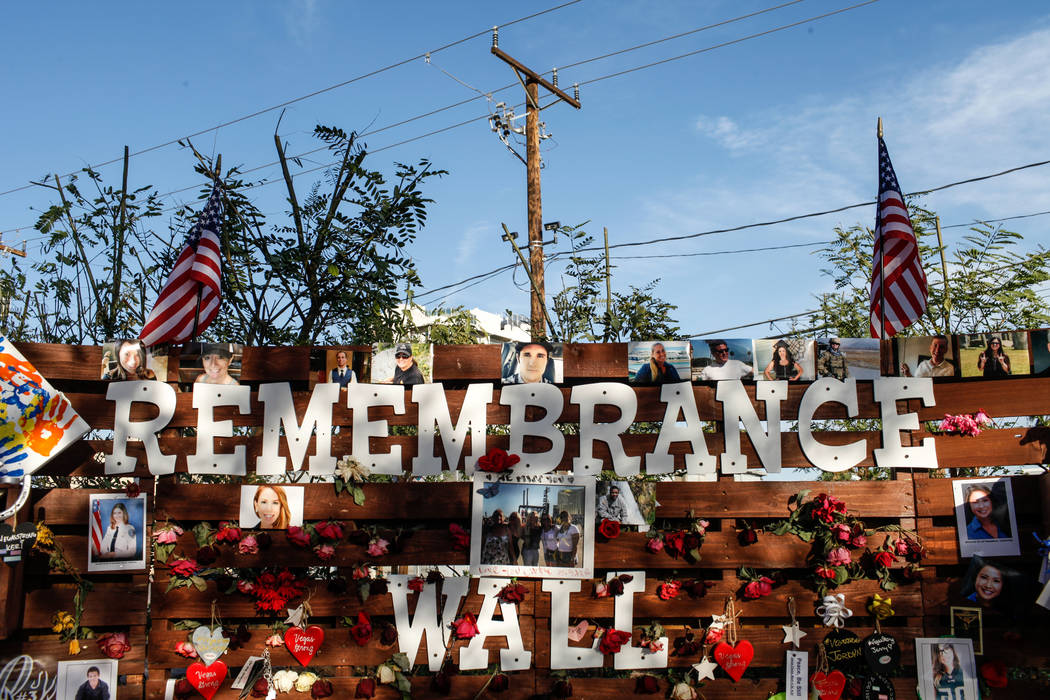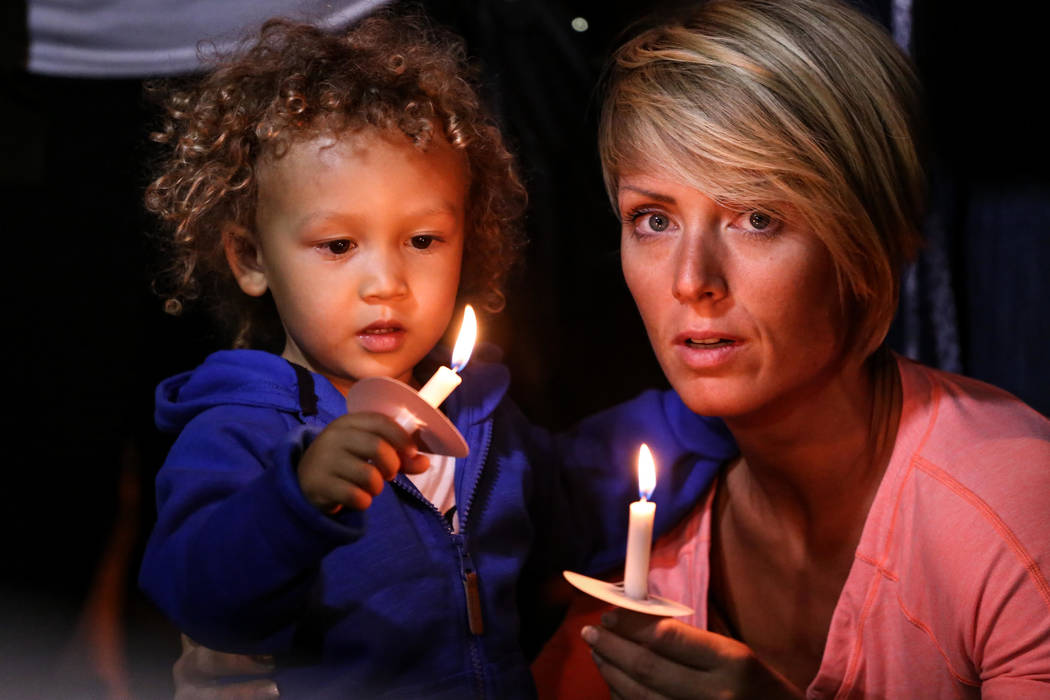Las Vegas shooting victims will need to apply to receive donation money
Victims of the Las Vegas shooting will have to apply to receive money raised on their behalf and might have to wait six months for payment, a victim-compensation expert told the Las Vegas Review-Journal.
Kenneth Feinberg said victims and families can expect to receive money within three to six months, but only if a local committee is formed soon to manage the process of distributing millions of dollars in donations and pledges.
Feinberg helped distribute donations to the injured and the families of the fallen after the 2016 shooting at the Pulse nightclub in Orlando, Florida, which left 49 people dead and 68 injured. Feinberg helped distribute $29.5 million to 229 people. Feinberg also helped distribute more than $60 million on behalf of the four people killed and 200 injured in the Boston Marathon bombing in 2013.
He is volunteering his expertise in Las Vegas following the Oct. 1 shooting at the Route 91 Harvest festival.
The Clark County government is working to form a local committee to define a victim and manage the process of distributing donations. Feinberg will draft the protocol for the local committee, which he said will decide several key questions:
— Are nonphysical injuries, such as psychological trauma, eligible?
— How will the distribution process be made equitable?
— How will money be distributed if relatives of the deceased disagree on who should be paid?
— When will people receive money?
The committee
Clark County spokesman Erik Pappa on Tuesday was not able to provide details such as who will be appointed to the committee, how many people will serve on it and who will appoint members.
Feinberg said the process of distributing money will have “full transparency,” and everybody will know how much money everybody else is getting.
As soon as a committee is formed, a public comment period will help members establish protocols and answer key questions. After protocols are finalized, applications will be made available for people to apply for benefits.
The process
In Orlando last year, applications became available 14 weeks after the shooting, and victims and family members were given six weeks to apply. The committee will approve payments based on the aggregate amount of money available, Feinberg said.
Donors from all over the world have contributed more than $15 million so far for victims of the Las Vegas shooting. But the sum is spread over several accounts yet to be consolidated. It is not yet clear how much money will be paid directly to shooting victims and how much might support community needs.
Jeff Dion, deputy executive director of the National Center for Victims of Crime, is working with Feinberg to distribute money to Las Vegas shooting victims. Dion and Feinberg worked together last year in Orlando.
“What we’ve done in the past and our general approach has been that people in similar circumstances get the same level of benefits,” Dion said.
“The families of those who were killed all got the same level of benefits. People who suffered psychological trauma all get the same level of benefits. With injury cases, there’s a little bit of variation based on severity, and we’ve used in the past a guide of number of nights hospitalized to categorize those.”
Dion said he and a team of staffers from the National Center for Victims of Crime will work with the FBI to validate claims.
Family disputes
Dion and Feinberg said family disputes can slow payments.
Dion said families of the deceased should begin identifying a family representative for their loved one’s estate, if they haven’t already done so. A family representative must be authorized to apply for compensation.
“If everybody agrees on what the distribution within that family is, then we’ll honor that. If people can’t agree on how that should be distributed, then we’re going to go ahead and send it to the probate court.”
Contact Nicole Raz at nraz@reviewjournal.com or 702-380-4512. Follow @JournalistNikki on Twitter.
How to stay informed
Jeff Dion, deputy executive director of the National Center for Victims of Crime, said victims of the shooting and their families should go to nationalcompassionfund.org and fill out the Victim and Survivor Contact Form.
"Everybody who is on that list is going to get the draft protocols. They're going to get notices of the town hall meetings explaining the protocols. They're going to be sent applications. They're going to be sent information on getting individualized help with their application. So if people want information, we don't have the answers yet, but we know where they need to sign up so that, when those answers are available, they will be pushed out to them immediately," Dion said.
The probate court process
Las Vegas-based probate lawyer Jonathan Reed, with the Reed & Mansfield law firm, said the first step in representing an estate is to ask the probate court to name you as executor or personal representative or administrator — whichever term is used in your state.
You'll likely need to file an application, a death certificate and the original will (if there is one) with the local probate court in the county where the deceased person was living at the time of death.
If the deceased person owned real estate in more than one county in the same state, one probate will suffice.
If the personal representative is not living in the state where the probate is taking place, the out-of-state resident may need to appoint a resident of the probate state to serve with them as a co-administrator.
Legal Aid Center of Southern Nevada and the State Bar of Nevada said last week they will provide pro bono legal services to victims of the Oct. 1 shooting on the Strip.

























